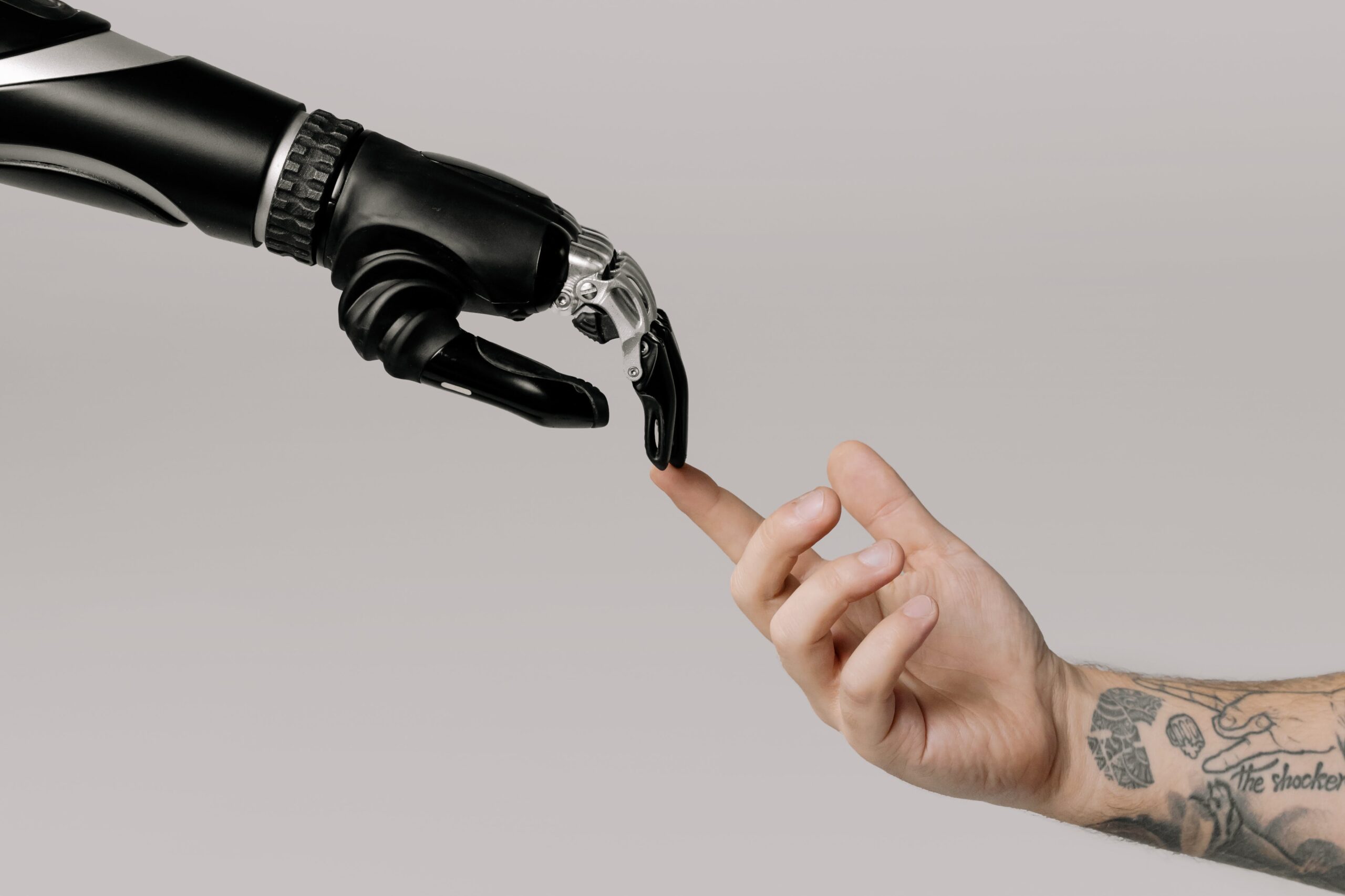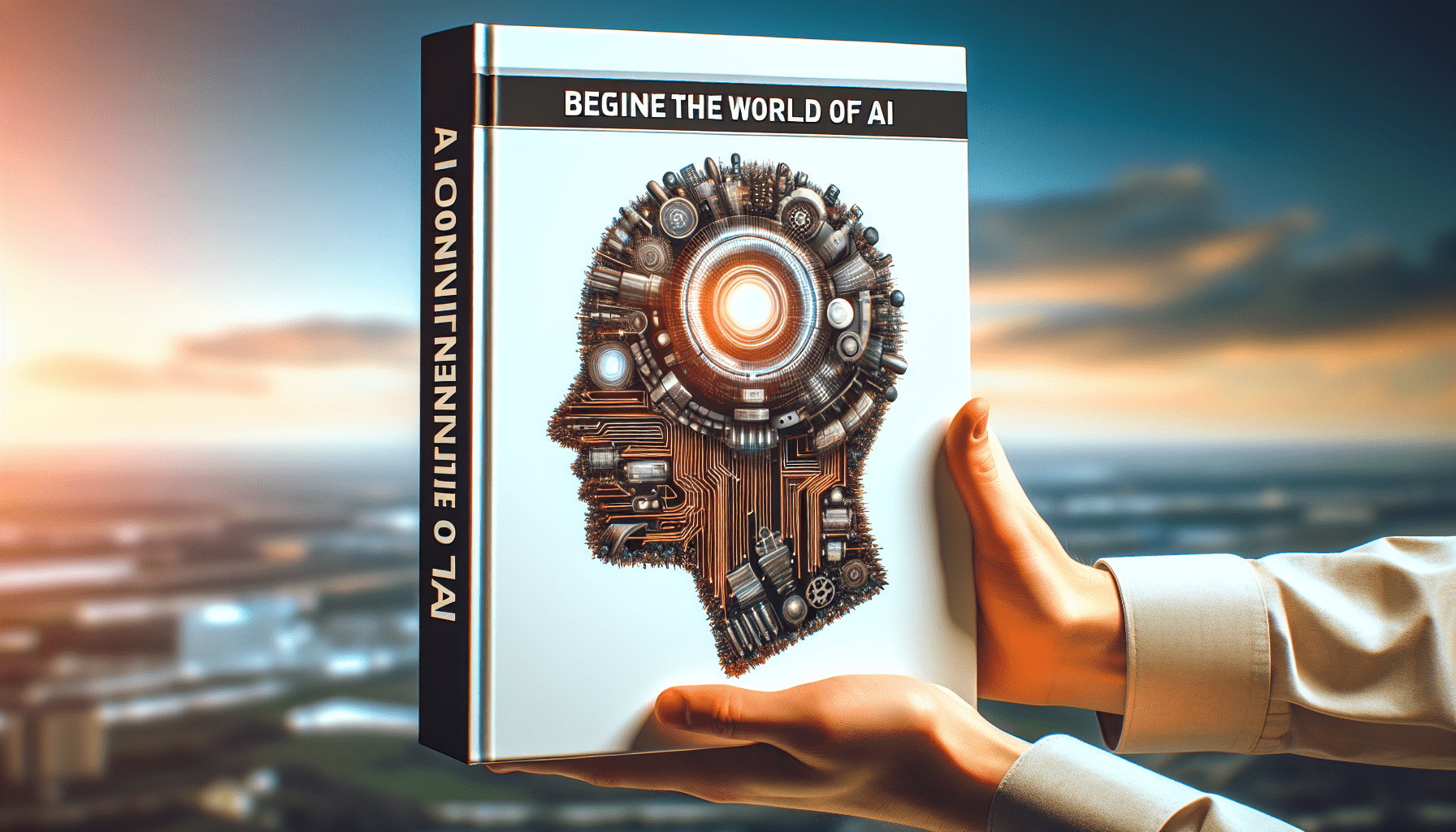If you’re new to the world of Artificial Intelligence and find yourself wanting to know more, then “Demystifying Artificial Intelligence: A Newbie’s Manual” is the guide for you. This comprehensive manual provides a friendly and accessible introduction to AI, demystifying complex concepts and breaking them down into easy-to-understand terms. Whether you’re a tech enthusiast or simply curious about the potential of AI, this manual will serve as your roadmap to navigate the exciting and ever-evolving world of Artificial Intelligence.

What is Artificial Intelligence?
Artificial Intelligence (AI) refers to the simulation of human intelligence in machines that are programmed to think and learn like humans. It involves designing and developing computer systems that can perform tasks that typically require human intelligence, such as speech recognition, decision-making, problem-solving, and learning from experience. AI is a rapidly growing field that aims to create machines capable of understanding, reasoning, and interacting with the world in a manner similar to humans.
Definition of Artificial Intelligence
Artificial Intelligence is a branch of computer science that deals with the creation of intelligent machines capable of performing tasks without explicit human programming. AI systems can analyze vast amounts of data, recognize patterns, and make informed decisions or predictions based on the data. The ultimate goal of AI is to develop machines that can replicate human cognition and adapt to different situations.
Importance of Artificial Intelligence
Artificial Intelligence has become increasingly important in today’s digital era due to its potential to revolutionize various industries and improve human lives. AI technologies have the ability to automate mundane tasks, enhance efficiency, and deliver innovative solutions to complex problems. They have the potential to transform healthcare, transportation, finance, education, and many other sectors, making them more efficient, accurate, and accessible. AI is also expected to drive economic growth and create new job opportunities in emerging fields.
History of Artificial Intelligence
Origins of Artificial Intelligence
The concept of Artificial Intelligence dates back to ancient times, with the earliest ideas and philosophies revolving around the creation of intelligent machines. However, the modern field of AI originated in the mid-20th century when pioneers like Alan Turing and John McCarthy introduced the idea of machines that can imitate human intelligence. The development of the first electronic computers in the 1940s and 1950s provided a platform for early AI research.
The AI Winter
In the 1970s and 1980s, AI faced a significant setback known as the “AI Winter.” During this period, the high expectations for AI did not meet the reality, leading to a decline in funding and interest in the field. The progress in AI research was slow, and the technology did not live up to the hype, resulting in a loss of faith in its potential.
Resurgence of Artificial Intelligence
However, AI experienced a resurgence in the 1990s, fueled by advancements in computing power and the availability of large datasets. Breakthroughs in machine learning algorithms and the development of powerful computational models allowed for significant progress in AI research. Today, AI has become a prominent field, with groundbreaking applications and continued innovation in various domains.
Types of Artificial Intelligence
Narrow AI
Narrow AI, also known as Weak AI, refers to AI systems that are designed to perform specific tasks within a predefined scope. These systems excel at single tasks and are limited in their ability to generalize or understand contexts beyond their designated domain. Examples of narrow AI include voice assistants like Apple’s Siri, image recognition software, and recommendation engines used by streaming platforms.
General AI
General AI, also known as Strong AI or Human-level AI, represents AI systems that possess the ability to understand, learn, and apply their intelligence to a wide range of tasks and contexts. These systems mimic human intelligence and exhibit characteristics such as reasoning, problem-solving, and abstract thinking. General AI remains a theoretical concept and is yet to be fully realized.
Superintelligent AI
Superintelligent AI refers to AI systems that surpass human intelligence across all cognitive abilities. These hypothetical systems possess superior problem-solving skills, creativity, and self-awareness. Superintelligent AI is currently a subject of speculation and debate among experts and researchers, with concerns regarding its potential impact on society and whether it can be safely controlled.
Applications of Artificial Intelligence
Machine Learning
Machine Learning is a subset of AI that focuses on the development of algorithms and models that enable computers to learn and improve from experience without explicit programming. It allows machines to analyze vast amounts of data, recognize patterns, and make accurate predictions or decisions. Machine Learning finds applications in various domains, including healthcare diagnostics, fraud detection, financial forecasting, and autonomous vehicles.
Natural Language Processing
Natural Language Processing (NLP) involves the interaction between computers and human language. It enables machines to understand, interpret, and generate human language in a way that is similar to how humans communicate. NLP powers applications like voice assistants, chatbots, and language translation tools, and plays a vital role in enhancing human-computer interaction.
Robotics
Robotics is an interdisciplinary field that combines AI, mechanical engineering, and computer science to develop intelligent machines capable of physical actions. AI-powered robots can perform tasks in environments that are dangerous, inaccessible, or monotonous for humans. In industries such as manufacturing, healthcare, and agriculture, robots can automate processes, assist in surgeries, and improve productivity.
Speech Recognition
Speech Recognition technology enables computers to convert spoken language into written text. This technology has advanced significantly in recent years, allowing for accurate and efficient speech-to-text conversion. Speech recognition is employed in applications such as voice assistants, transcription services, and call center automation, improving accessibility and efficiency in various domains.
Computer Vision
Computer Vision enables machines to interpret and understand visual information from images and videos. It involves tasks like image recognition, object detection, and scene understanding. Computer vision has applications in autonomous vehicles, surveillance systems, medical imaging, and facial recognition, among others.

Ethical Considerations in Artificial Intelligence
Bias and fairness
One of the significant ethical considerations in AI is bias and fairness. AI systems learn from data, and if the training data is biased, it can lead to biased decision-making. Biased AI systems can perpetuate and amplify existing societal inequalities, leading to discrimination and unfair treatment. It is crucial to ensure that AI algorithms are designed and trained with diverse and representative datasets to mitigate biases.
Privacy and security
AI systems often process and analyze large amounts of personal data, raising concerns about privacy and security. Protecting individuals’ privacy and ensuring the security of sensitive information are critical aspects in the development and deployment of AI technologies. It is essential for organizations and policymakers to establish clear guidelines and regulations to safeguard personal data and maintain trust in AI systems.
Job displacement
The increasing adoption of AI technologies has raised concerns about job displacement. While AI can automate repetitive tasks and improve efficiency, there is a fear that it may render certain jobs obsolete. It is important to acknowledge and address the potential impact of AI on the workforce, ensuring that appropriate measures are taken to reskill and upskill individuals for new roles, and to create new job opportunities in emerging fields related to AI.
Myths and Misconceptions about Artificial Intelligence
AI will replace humans completely
Contrary to popular belief, AI is not intended to replace humans entirely. While AI systems can automate certain tasks and processes, they lack the qualities of human cognition, creativity, and emotional intelligence. AI systems are designed to assist and augment human capabilities rather than replace them. The focus is on human-machine collaboration, where AI technologies can enhance productivity and enable humans to focus on more complex and value-added tasks.
AI is only used in advanced applications
AI is often associated with advanced applications like autonomous vehicles and cutting-edge research, leading to the misconception that it is not relevant or accessible to everyday life. However, AI technologies are already present in our daily lives, often in more subtle ways. From personalized recommendations on streaming platforms to virtual assistants on smartphones, AI is becoming increasingly integrated into various aspects of our lives, improving convenience and efficiency.
AI is infallible
Another common misconception is that AI is infallible and always produces accurate results. While AI systems can achieve remarkable accuracy, they are not immune to errors or limitations. AI models heavily rely on the quality and diversity of training data, and biases or inaccuracies present in the data can influence the system’s outcomes. It is crucial to continuously monitor and evaluate AI systems to ensure their reliability and mitigate potential risks.

Benefits and Limitations of Artificial Intelligence
Advantages of AI
Artificial Intelligence offers numerous benefits across various domains. AI can automate repetitive and mundane tasks, improving efficiency and freeing up human resources for more complex and creative endeavors. It can analyze vast amounts of data quickly and accurately, enabling better decision-making and problem-solving. AI-powered systems also have the potential to enhance accessibility, healthcare outcomes, and overall quality of life.
Limitations of AI
While AI has tremendous potential, it also has certain limitations. AI systems heavily rely on data, and the lack of high-quality, diverse, and representative datasets can hinder their performance. Additionally, AI systems may struggle with complex reasoning and understanding context, making them vulnerable to misinterpretations and errors. Addressing ethical concerns, ensuring transparency, and developing robust regulations are crucial for mitigating these limitations and maximizing the benefits of AI.
Future of Artificial Intelligence
AI in everyday life
The future of AI holds promise for further integration into everyday life. As AI technologies continue to advance, they are expected to become more accessible and seamless, augmenting our daily activities. Voice assistants, smart homes, and personalized recommendations are just the beginning. AI is likely to find applications in education, transportation, entertainment, and other domains, making our lives more efficient, personalized, and connected.
AI’s impact on industries
AI is poised to have a significant impact on industries worldwide. Sectors such as healthcare, finance, manufacturing, and agriculture stand to benefit from AI-powered solutions. AI can improve medical diagnosis and treatment planning, optimize financial operations and investments, enhance manufacturing processes, and revolutionize agricultural practices. Organizations that harness the power of AI will gain a competitive edge and drive innovation in their respective industries.
Challenges and opportunities
The future of AI also poses challenges and opportunities. Ethical considerations, including privacy, bias, and job displacement, need to be carefully addressed. Furthermore, researchers and policymakers must focus on ensuring that AI technologies are unbiased, transparent, and safe. Advancing AI research and fostering collaboration in the field will unlock new possibilities and discoveries, pushing the boundaries of what AI can achieve.

Getting Started with Artificial Intelligence
Learning resources
For those interested in exploring Artificial Intelligence, there are numerous learning resources available. Online tutorials, articles, and blogs provide valuable insights into AI concepts, algorithms, and applications. Books and research papers by experts in the field offer in-depth knowledge and theoretical foundations of AI. Accessing reputable resources is essential for building a strong foundation and understanding the latest advancements in AI.
Online courses
Online learning platforms offer a wide range of courses on Artificial Intelligence, tailored for different skill levels. These courses provide hands-on experience and practical knowledge in AI programming, machine learning algorithms, and data analysis. Platforms like Coursera, edX, and Udemy offer courses from reputed universities and industry professionals, allowing individuals to gain expertise in AI at their own pace.
Specializations and careers
As AI continues to expand its influence, specialized careers in the field are in high demand. AI professionals can pursue careers such as Machine Learning Engineer, Data Scientist, AI Research Scientist, or AI Software Developer. Having a strong foundation in mathematics, statistics, and programming is essential for these roles. Pursuing higher education in AI or obtaining relevant certifications can further enhance career prospects in this dynamic field.
Conclusion
Artificial Intelligence is an exciting and rapidly evolving field that holds immense potential to reshape our world. From enhancing efficiency in industries to improving our daily lives, AI technologies offer numerous benefits. However, it is crucial to address the ethical considerations and limitations associated with AI to ensure responsible and safe development and deployment. By staying informed, exploring learning resources, and embracing the opportunities offered by AI, individuals and organizations can embark on a journey of discovery and innovation. So, seize the opportunity to demystify Artificial Intelligence and unlock its transformative power!







Leave a Reply